Croatian Seismologist Kresimir Kuk Talks Ins and Outs of Earthquakes
September the 26th, 2021 - As Central Croatia continues to battle with earthquakes of varying strengths with the horrid memory of the devastating one which struck Petrinja in December last year still fresh in collective memory, Croatian seismologist Kresimir Kuk seeks to answer some pressing questions.
As Poslovni Dnevnik writes, just a few days ago, two moderate earthquakes hit the Banovina area once again. At 01:32, seismologists from the Seismological Service recorded a moderate earthquake with the epicentre near Petrinja. The magnitude of the earthquake was 3.7.
Following that, seismologists from the Seismological Service recorded another moderate earthquake with the epicenter near Cuntic, a mere eight kilometres south of Petrinja. The magnitude of that earthquake was 3.6.
Croatian seismologist Kresimir Kuk told RTL.hr that these earthquakes are part of a series of earthquakes that are still unfolding and which started with the main Petrinja earthquake which caused sheer devastation back on December the 29th, 2020.
"These earthquakes aren't coming as a surprise us. We've said many times that these sorts of series of them go on. The fact is that in the last month, I'd venture to say, we've had more frequent earthquakes and greater seismic activity and slightly stronger earthquakes than some multi-month average,'' explained Croatian seismologist Kresimir Kuk.
He also commented on the thesis that appeared on social media that the Petrinja fault had finished ''rocking'' and that the Pokupsko fault is now the active one, which is why many people were worried that there could be a stronger earthquake along the Pokupsko fault yet to come.
"All of it is a fault zone. We have a few bigger ones that are better known. The whole area is seismically active and this is a normal, common occurrence. We can say that the epicentres migrate. We have the entire area between Sisak, and even further down south, the entire radius of a few 10 kilometres around Sisak or Petrinja and the narrower epicentral area, we have earthquakes there that constantly occur for several months. They go down to Jasenovac and then go a little north, north-west... and that's normal. It isn't that one fault was activated by another, but rather that we have an epicentral area that is active,'' Cuk said.
After the Petrinja earthquake, about 40 accelerographs and seismographs were installed in the Banovina area. Croatian seismologist Kresimir Cuk said a lot of earthquakes are still being recorded in the area and that the data they're collecting is being constantly looked into and more deeply analysed.
"We're getting large amounts of valuable data that will provide some significant information about this earthquake in Petrinja for many years to come," Kuk said.
Asked whether the Petrinja earthquake may have relieved the energy in some of Zagreb's own faults, such as the Kasinski fault, Kuk said that the interaction of the two epicentral areas would take much longer to see and that only time would tell how truly interconnected they are.
“The fact is that they're far enough away that they aren't directly connected. The Medvednica epicentral area is still active, which is normal, but it's weakly active and it's rare that we have earthquakes which are actually noticed. That's something to be expected. When they do occur, then they release energy, but it's more about establishing a new equilibrium state after the events of the main earthquakes and a series of subsequent earthquakes. It's the establishment of a new equilibrium that will last for some time,'' he said.
He also said that the thesis that it is better to have more small earthquakes that will relieve the energy that accumulates on a fault is theoretically justified.
For more, follow our lifestyle section.
Croatian Schools Do Not Offer Systematic Education About Climate Change
ZAGREB, 26 Sept, 2021 - Croatian schools still do not offer systematic education about climate change even though transition to a climate neutral economy will create more than one million jobs in the EU in the period until 2030, teachers interested in the topic of climate change have said.
Croatian students acquire most of the knowledge about climate change by participating in projects.
Sanja Turčić Padavić, a teacher at a Rijeka secondary school, says that young people are aware that the new time brings new challenges that will be easier to deal with with green skills but that school curricula make no mention of such education.
Teachers who consider the topic important find a way to include it in their work with students, but there has been no incentive from the Science and Education Ministry, Turčić Padavić says.
"I convey the knowledge I have acquired through the subject I teach. If I were not involved in projects, I would probably not know what to teach about climate change or how," she says.
A study on climate change in the EU, of which she is a coordinator and which is part of the Erasmus+ programme, will be conducted over a period of three years.
It will focus on 243 endangered animal and plant species in three countries. The focus in Croatia is on fauna and based on the study's results, an innovative plan of recovery will be proposed for each of the species.
Several Croatian schools regularly take part in a national reforestation campaign, which is designed to point to the importance of trees in mitigating climate change.
There are also other forms of education, including a workshop organised by the Tatavaka association in July, which also involved members of the Civil Protection who as part of the school curriculum, have been preparing a handbook on how to reduce disaster risks.
Italy is the first country in the world to have officially introduced education about climate change and sustainable development in the school system, owing to efforts by former Education Minister Lorenzo Fioramonti.
Education on climate change received a lot of public attention with the climate marches of 2019, organised by students.
A 2020 survey on climate education in Europe collected 1,101 responses, with 89% coming from education workers. Almost all agreed that school is responsible for climate education, however, 70% said climate education was insufficiently present in school curricula.
Lack of competence and training was cited as the most frequent reason why teachers could not include it in curricula, the second reason being lack of resources.
A small percentage of respondents expressed doubts as to the existence of evidence about climate change being a serious problem.
The importance of education for strengthening the European framework for green competencies has been underlined at this year's EU Green Week.
Today there are initiatives such as UNESCO's education on climate change, eTwinning, Erasmus+, the European Parliament Ambassador School Programme (EPAS), and others.
The Green Deal and the fight against climate change are among priority policies of the European Parliament and special attention will be paid to these topics through activities, seminars and programmes that are organised by the EP Office in Croatia, the Office has said.
EPAS has been implemented in Croatia since 2016 and so far more than 60 secondary schools have attended it.
The European Parliament in 2019 declared a climate crisis, calling on the European Commission to harmonise future legislative and budget proposals with the objectives of the Paris Agreement on climate change.
In June this year the EP approved a new regulation on climate increasing the target reduction of greenhouse gas emissions in the EU in the period until 2030 from 40% to at least 55%.
It also adopted a position on the Biodiversity Strategy for 2030 which aims to put under protection at least 30% of land and sea in the EU.
Transition to a low-carbon economy will create more than one million jobs in the period until 2030, which requires retraining and additional training for more than 120 million Europeans in the next five years.
According to OECD data, many countries have already included topics related to environmental protection in their school curricula, however, there is still no comprehensive strategy at the EU level.
For more on lifestyle, follow TCN's dedicated page.
For more about Croatia, CLICK HERE.
COVID-19 Update: 837 New Infections, 15 Deaths
ZAGREB, 26 Sept, 2021 - In the past 24 hours 837 coronavirus cases and 15 related deaths have been confirmed in Croatia, while the number of active cases stands at 8,184, the national COVID-19 crisis management team said on Sunday.
A total of 692 persons are hospitalised, including 99 on ventilators, while 23,028 persons are self-isolating.
Croatia has registered 399,891 coronavirus cases to date, including 8,595 deaths, and 383,112 recoveries, of which 1,215 in the past 24 hours.
To date 2,790,935 persons have been tested for the virus, including 9,098 in the past 24 hours, and 44.49% of the population has been vaccinated, including 53.38% of adults, of whom 50.14% fully.
For more on COVID-19, follow TCN's dedicated page.
For more about Croatia, CLICK HERE.
Fresh Details Emerge in Harald Kopitz Children Deaths
September 26, 2021 - New details have emerged in the Harald Kopitz children deaths on September 25 in the Zagreb neighborhood of Mlinovi.
Harald Kopitz, a 56-year-old Austrian from Vienna who lives and works in Zagreb, killed his three children at 2 am on Saturday, September 25. He is said to have strangled his 7-year-old twins and 4-year old son. He also posted a haunting message on Facebook before the crime and tried to kill himself. But many questions have been left unanswered.
Police found the lifeless bodies of three children, two seven-year-old twins, and a four-year-old boy, and their stunned father, who tried to kill himself, in an apartment in Zagreb's Mlinovi neighborhood. He was transported to KBC Sisters of Charity, where he is now being treated. He is guarded by the police at all times.
Harald Kopitz was a businessman that worked for several large companies as a financial consultant and negotiator.
The parents of the murdered children were divorced, the mother was not in Zagreb at the time of the crime, and the children were spending the weekend with their father. The police say that there were no reports of domestic violence in that family before. However, the Zagreb County State's Attorney's Office, which investigated the Mlinovi neighborhood, reported that their 56-year-old father, an Austrian citizen, was suspected of killing the three minor children.
The Prosecutor's Office stated that, in cooperation with the police, it took further measures and actions within its competence to determine all the circumstances of these criminal offenses.
But while the police and the Prosecutor's Office are trying to unravel all the circumstances of the horrific crime, information is leaking to the public about the murder and the killer, reports Index.hr.
According to the latest information obtained by Index from sources close to the investigation, investigators, who first believed that Kopitz strangled his children, are increasingly inclined to think that the key to death was poisoning, probably pills.
However, suffocation injuries were found on the bodies of the three children, so investigators suspect that the father poisoned and suffocated the children, Index has learned.
But what exactly caused the deaths of the children will be determined by the expected autopsy results, as well as by toxicological expertise.
It is also possible that some of the children died of poisoning and some by suffocation.
The cause of death of the three children is one of the critical questions to which there is no answer yet. In addition, in the coming days, investigators will search for answers to questions that prompted the perpetrator to commit such a crime, whether he planned everything, but also whether he was under the influence of any means that would affect his judgment.
The children were with their father for the weekend as the ex-wife left them on Friday to go on a business trip to Dubrovnik. Around midnight, it is suspected that Kopitz got the children ready for sleep and gave them a cocktail of various pills and medicines before. According to Večernji List, the children, or one of them, started to wake up, and Kopitz then began to choke them.
However, it is not yet known what exactly the children died of and whether it was suffocation or poisoning, as investigators increasingly believe.
When he was convinced that none of the three children were breathing anymore, one by one, he took them in his arms and carried them to the couch in the living room. He laid them next to each other and placed their favorite toys around them.
A gruesome scene greeted police officers who came out to report a possible suicide. Namely, shortly after midnight, the 56-year-old Austrian posted a farewell status on Facebook and Instagram.
 One of his acquaintances noticed this status and informed the police, who immediately went to the apartment. But it was too late. The status has since been removed from Facebook but remains on Instagram and Linkedin.
One of his acquaintances noticed this status and informed the police, who immediately went to the apartment. But it was too late. The status has since been removed from Facebook but remains on Instagram and Linkedin.
The officers were shocked by the horrific scene, and to experienced investigators, this was one of the scariest scenes they had ever witnessed. Children's clothes were hanging on the window of the apartment where the horror took place that morning.
The officers at the scene will require psychological help.
"I would like to take this opportunity to express my sincere condolences to my mother and extended family members as a police officer, but also on my behalf, a mother and parent. Given that this is a very traumatic event, the police officers will be provided with professional assistance," said Nikolina Grubišić Požar from the Zagreb Juvenile Delinquency Department in a statement in front of the Zagreb police headquarters.
Grubišić Požar added that upon arriving at the scene in Mlinovi, a man was found in poor health and three minor children who showed no signs of life.
"The arrival of the emergency medical doctor confirmed the death of the children and that it was a violent death. The citizen was provided with medical assistance and placed at Sisters of Charity Hospital, where he is hospitalized," Grubišić Požar added, concluding that a criminal investigation was underway.
The Zagreb police had no information, nor had they ever intervened in a family in the Zagreb neighborhood of Mlinovi.
The director of the Sisters of Charity Hospital, Davor Vagić, said that 56-year-old Harald Kopitz is stable for now.
"Tonight, a 56-year-old man with a narrowed consciousness was brought by ambulance accompanied by the police. The patient was treated in our unified Emergency Hospital, after which he was transferred to our intensive care unit, where further diagnostics and treatment were made," said Vagić in an extraordinary address to the press in front of the Vinogradska Hospital.
According to him, the patient is stable and with no life-threatening conditions.
"The man is conscious. Absolutely all possible findings are being made under the suspicion that he was under the influence of psychopharmaceuticals, but we cannot say that definitively," Dr. Vagić emphasized.
Psychopharmaceuticals are generally considered drugs that affect mental processes, so they are used to treat mental illness and disorders. They include several groups of drugs such as psycholeptics (antipsychotics, anxiolytics, hypnotics, and sedatives), psychoanaleptics (antidepressants, psychostimulants, nootropics, and anti-dementia drugs), and other drugs that act on the central nervous system. However, in a broader sense, psychopharmaceuticals are considered chemical substances that, in a specific dose, have a special effect on mental life and cognitive behavior.
Psychiatrist Herman Vukušić said that mentioning psychopharmaceuticals, in this case, could be harmful because it could lead to patients shying away from them and that it is almost impossible for these drugs to be the cause of such a crime.
State Secretary at the Ministry of Family and Social Policy Margareta Mađerić said that the competent Center for Social Welfare had no information about domestic violence.
"The Center for Social Welfare did not have any reports, of individuals, mothers, but also of any other bodies, which would indicate domestic violence against children or mothers," Mađerić said at a press conference.
She pointed out that this family was in a mandatory consultation at the competent Center for Social Welfare in 2018, adding that this is the standard procedure for all divorced couples.
She said that the father and mother of the children then came to the Center together and agreed to have joint custody of their three children.
"After that, there was no action by the Social Welfare Center. The center could not act because they did not have information that there was violence," said Mađerić.
At the same time, she called on the citizens to immediately report any suspicion of violence in their environment to the competent institutions.
While investigators are trying to unravel all the circumstances of the horrific crime, the mother, devastated by what happened, went to Neum, where she was born.
According to unofficial information, Bosnia and Herzegovina's Dnevni Avaz writes that the children will be buried in Neum.
Dragan Jurković, the mayor of Neum, explained the connection between the mother and Neum. He also said the children were there this summer.
"She finished primary school in Neum, her parents live in Neum, and the children stayed in Neum over the summer," Jurković told Avaz.
He announced a day of mourning if the funeral is in Neum.
"If the funeral of the children is in Neum, we will declare a day of mourning on that day. I am very sorry. I express my sincere condolences," concluded Jurković.
TCN will be updating this story as things develop.
For more news in Croatia, follow TCN's dedicated page.
Sinj Green Cleanup Collects 50 Tons of Waste!
September 26, 2021 - The Sinj green cleanup over the weekend collected 50 tons of various waste in the Inland Dalmatian area!
This year, the City of Sinj joined a joint, one-day action to clean illegal landfills as part of Croatia's largest environmental volunteer project, organized in sync with World Cleanup Day, reports Dalmacija Danas.
The Mayor of Sinj Miro Bulj joined numerous volunteers in the field. He announced that similar actions in the Sinj area would be organized in the future, regardless of this particular green action.
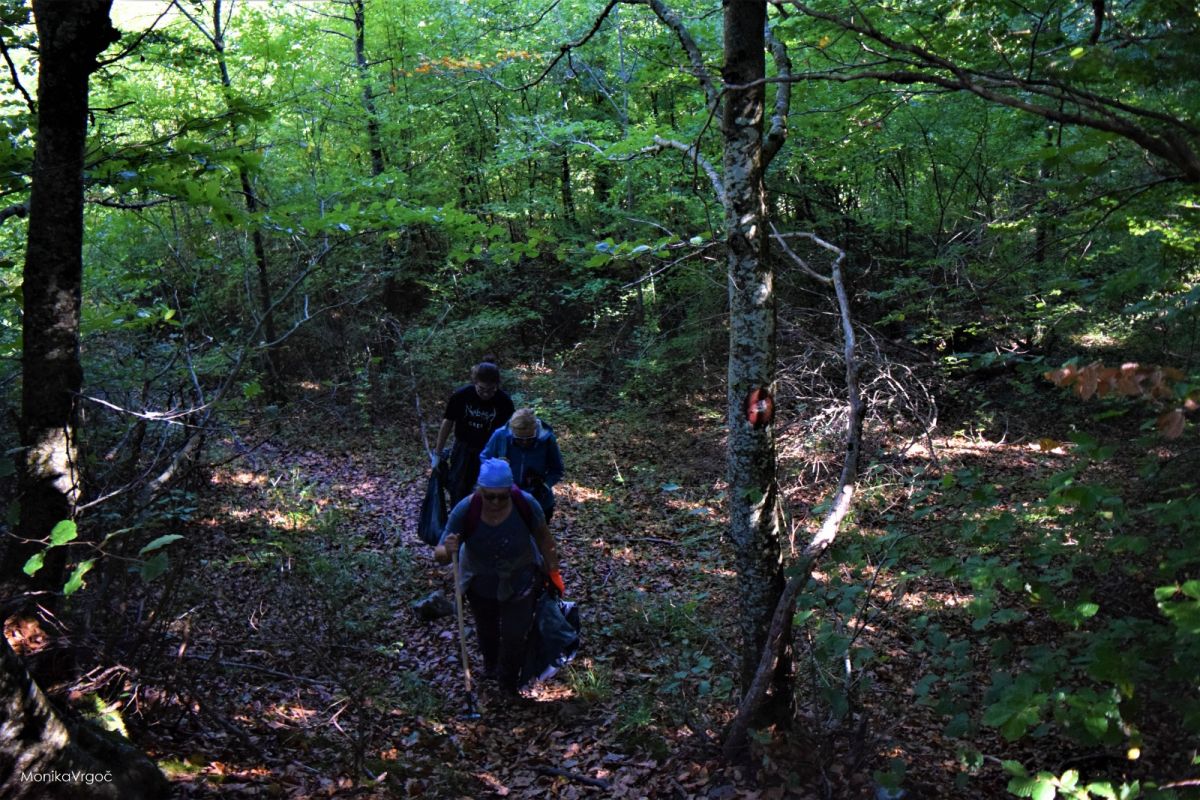
Employees of Čistoća Cetina Region, JVP Sinj and DVD Sinj, HGSS, mountaineers, BIOM, the Sinj Tourist Board, students of the Ivan Mažuranić Han Elementary School, and numerous associations from the Sinj area took part in the action.
More than 100 volunteers cleaned illegal dumps in the Cetina river area, from Panj to Despotuša, Sutina, the water reservoir on Radošić, Brekina Gora - Izvor Bukva, and the airport on Piket.
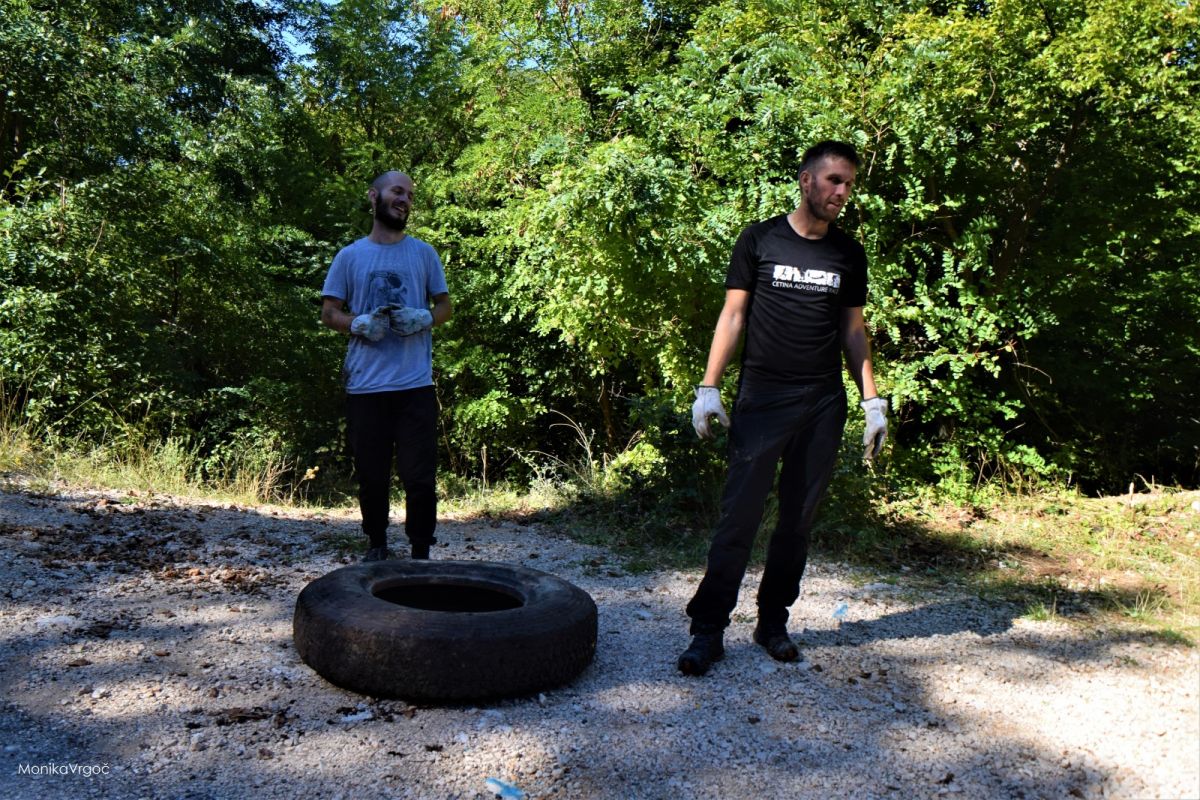
Sinj volunteers collected more than 50 tons of various waste from 9 am to 1 pm
The goal of the national campaign, which is being held for the tenth year in a row, and for the first time in Sinj, is to raise the awareness of Croatian citizens about their role in creating and disposing of waste, their healthy habits, cleaner environment, and active problem-solving approach.
The message of this year's action is that by cleaning our corner of the environment, together, we raise awareness of the human impact on the environment and the importance of responsible waste management to preserve the environment, nature, and planet Earth, and our common good.
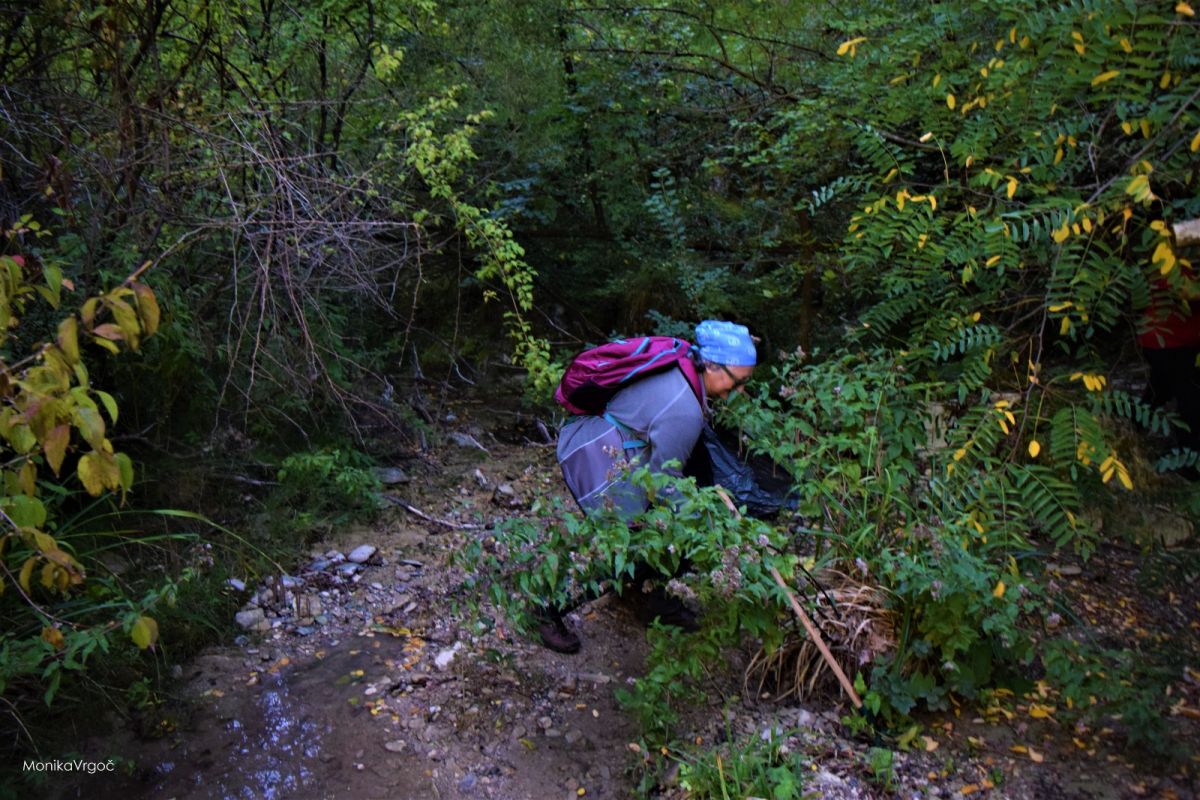
Mayor Miro Bulj thanked everyone for their support and assistance in organizing waste removal from illegal landfills in Sinj and recently announced new cleaning actions and stricter measures for those who pollute nature.
For more on Inland Dalmatia, follow TCN's dedicated page.
Self-Isolation Rules Change for Croatian Schools Coming
September the 26th, 2021 - The ongoing coronavirus pandemic has seen Croatian schools close their doors for long periods of time and children learn from home via what has since been referred to as distance learning. Online platforms and Zoom classes became the norm for extended periods, and kids were often in and out of self-isolation in their droves as their classmates tested positive for the virus and parents became more and more desperate about things such as child care. That's all about to alter somewhat.
As Poslovni Dnevnik writes, the head of the Croatian Institute of Public Health (HZJZ), Krunoslav Capak, has explained the changes that Croatian schools and pupils are set to face, which should take a weight off the shoulders of not only the education system and the children, but worried parents who, in many cases in the past, exhausted many resources they may not really have had.
“It isn't necessary for whole classes to go into self-isolation, it needs to be determined which kids were in close contact. A document on that topic is being prepared, and most importantly, only those students who sat at the same benches/desks, those within a radius of two metres and those who traveled longer than fifteen minutes with a student who fell ill [tested positive] will be placed into self-isolation,'' explained Krunoslav Capak at a recently held press conference during which the matter was discussed in more depth.
The document will be completed by the end of this week, but it is not yet known when it will take effect, so until then Croatian schools must continue being extra careful as infection numbers remain quite high across the country.
"The assessment should be made by an epidemiologist when they receive information from the child themselves in these cases, and it's going to be a similar thing with preschoolers. It all depends on how long the contact with the positive person has been,'' explained Krunoslav Capak.
For all you need to know about coronavirus in Croatia, make sure to bookmark our dedicated COVID-19 section and select your preferred language.
Croatia's Sasa Bilic to Present APIS IT at EURITAS Summit in Brussels
September the 26th, 2021 - The Republic of Croatia is set to present APIS IT, headed by Sasa Bilic, at an upcoming summit in the Belgian capital of Brussels at the end of this month.
As Poslovni Dnevnik/Lucija Spiljak writes, the development of a cloud strategy and the application of open source and cyber security issues are the main topics of the EURITAS summit entitled "Ensuring Digital Sovereignty of European Governments" which is set be held on the 30th of September in Brussels.
EURITAS is an organisation of European providers of IT services operating within the public sector that brings together eleven IT companies in majority public ownership from eight countries. Along with Croatia, those countries are Austria, Denmark, Finland, Italy, the Netherlands, Germany and Switzerland.
Croatia will be represented at the summit by APIS IT (Agency for Support of Information Systems and Information Technologies), whose President of the Management Board, also Vice President of EURITAS, Sasa Bilic, will participate in the discussion on digital sovereignty. This is a close area to APIS IT, considering that it is Croatia's leading state-owned company for IT solutions for state administration and local self-government, which participates in the development of the national cloud strategy.
As a publicly owned company, APIS IT is focused on the needs of public administration, so the biggest users are the Ministry of Finance, ie Tax and Customs Administration, the Ministry of Justice and Administration and the Ministry of Physical Planning, Construction and State Property for which APIS IT has built and maintains complex information systems.
On the other hand, in cooperation with the Central State Office for the Development of the Digital Society, APIS IT is collaborating on two significant EU projects - the establishment of the Shared Services Centre (CDU) as a state cloud, and e-Business.
As the cloud strategy is one of the key topics of the summit, Sasa Bilic gave a brief overview of cloud services in Croatia and in Europe, but also specifically in the company he leads.
"According to Eurostat data, Croatia's use of cloud services is above the European average, ie in the upper third of the table. This, however, applies to the economy, while we as a technical partner to the Central State Office for the Development of the Digital Society in the cloud platform construction project are particularly focused on public administration. Here we can say that in less than two years since the beginning of the project, we've reached 200 public administration bodies that use the infrastructure and services of the Shared Services Centre, which is an excellent indicator of the justification of the project implemented by the Central State Office. Namely, the planned performance indicator that we need to achieve by the end of 2023, when the project officially ends, is 300 users, which speaks volumes about the interest and needs of public administration bodies,'' explained Sasa Bilic in a bit more detail.
Sasa Bilic also explained why the summit's focus is on primarily digital sovereignty. For the European Union this issue is becoming increasingly important given that 92 percent of the data from the Western world is stored on servers owned by companies outside the EU that aren't subject to European laws on personal data protection, while at the same time, among the largest 20 technology companies have none from the EU.
"Such a state of affairs and dependence on monopolistic suppliers who aren't subject to the European Union's rules of the game is an obvious strategic weakness of the EU, which the prime ministers of Germany, Denmark, Estonia and Finland warned about in a joint letter sent to the European Commission a few months ago.
Control over data, but also hardware and software, they pointed out, is not only an important economic but also a first-class social and security issue. Therefore, the leaders of the four countries, led by German Chancellor Angela Merkel, called on the European Commission to adopt an action plan based on a new digital policy that will be open to cooperation with all, but whose main motive will be digital independence and self-determination.
The Croatian IT giant, which records revenue growth every year, has secured two national data centres in Zagreb and Jastrebarsko that meet the strictest TIER3 security and availability standards.
"Thanks to such a level of security, we can be the first choice for storing all IT systems, applications and data, so, for example, data about people will not have to be stored outside of Croatia. However, an equally important aspect of this topic is that through the construction of digital independence, we can provide and retain high value jobs, which creates the preconditions for the further development of society as a whole,'' explained Sasa Bilic.
The guaranteed availability of data centres stands at an impressive 99.98 percent per year, they have more than 1800 square metres intended for the storage of IT equipment, with the possibility of further expansion, while the delivery of 1.6 MW of electricity is guaranteed through the installation of four electricity sources with a total capacity of 7.2 MW.
This provides capacities that can successfully follow the growing needs of public administration, but also the private sector in the next medium term. According to the company, both data centres have redundant power sources, cooling systems and telecommunications networks, which can guarantee their customers uninterrupted operation and business continuity in all circumstances.
For more, see Made in Croatia.
No Covid Certificate? No Entry into Croatian Hospitals, Except in One Case
September the 26th, 2021 - You won't be able to enter Croatian hospitals unless you have a covid certificate, regardless of who you are and even if you work there as a medic, with the exception of just one particular circumstance.
Croatian Health Minister Vili Beros has been quite clear in his recent messages issued to the country's healthcare workers - if you don't have a covid certificate proving you're either fully vaccinated or have a recently obtained negative test result, don't bother coming into work. While he has stated that testing for those who don't want the vaccine will be free for a while, that won't continue for long, and they therefore have a choice to make.
As Poslovni Dnevnik writes and as N1 has since unofficially found out, aside from this being needed for healthcare workers and employees in other activities within Croatian hospitals, all hospital patients, except in cases of emergency, will have to have their obligatory covid certificate proving that they have previously contracted the novel coronavirus and since recovered, have been fully vaccinated against it or have a very recently obtained negative test result.
The profession has prepared two documents in this regard, the first is already known and has been discussed quite extensively - these are the mandatory covid certificates for employees within Croatian hospitals (regardless of whether or not they're medical staff) and the healthcare system itself, and the second concerns hospital patients coming for treatment.
As N1 unofficially learned from the Ministry of Health - everything is now ready for the mandatory introduction of covid certificates for all non-emergency patients at Croatian hospitals. Therefore, only those who have been vaccinated, have had coronavirus and have since recovered, or those with a negative test will be able to enter the hospital for examinations, scans, treatments etc.
To prove that this time he is thinking and speaking very seriously, Minister Vili Beros has warned unvaccinated healthcare workers and those who don't want to frequently test for the virus - absence from work will not be paid.
For all you need to know about coronavirus in Croatia, make sure to bookmark our dedicated COVID-19 section and select your preferred language.
Reconnecting to the Nostalgia of the Bygone Days in Croatia
September 26, 2021 - Natalie Franćeska, the author of the children's book My Grandma is Like the Sea, draws upon the nostalgia of the bygone days in Croatia.
There is something powerful about reminiscing about the nostalgia of the bygone days. Research supports this, where experts have shown us that the modest dose of nostalgia has positive effects on people and their wellbeing. It can also help facilitate growth, self-discovery and serve as a source of future inspiration. Nostalgia may also very well be a way some have helped ease feelings of distress during Covid-19. Personally, I have been able to draw upon the nostalgia of bygone days in Croatia as a source of inspiration behind my children’s picture book My Grandma is Like the Sea; the illustrations having a strong influence from the Adriatic Sea.

Born in Australia with Croatian-born parents, I was fortunate enough to spend many childhood summers with my immediate family, including grandparents between Mali Ston, Korčula, and Dubrovnik. The recent loss of three of my grandparents really triggered me to reflect upon the bygone days spent with them. This, mixed with restricted facial interactions during Covid-19, led me to write a children’s book that instils the importance of respecting the wisdom of the elderly, whilst preserving the wonders of our children. My Grandma is Like the Sea follows a little girl and her grandmother who explore the sea and share unconditional love. The sea being a metaphor for the grandmother’s love and support.
My first summer spent with my paternal grandparents in Mali Ston was towards the end of the Homeland War. My grandparent’s house had been shelled, and there was much misery and grief in the surroundings. Despite this, my grandparents made us feel so loved, and taught us to treasure the simple things in life. Such as, the beauty of discovering blackcurrants wildly growing on the side of the street to make into fruit juice, or the value of a simple hello or embrace with those crossing our path whilst walking.
I have always really respected the way in which the young and old interact in Croatia. The magic of the youth and the enthusiasm to explore has always been met with a level of wisdom beyond their years. I believe that the close contact the youth have with the elderly generation has played a role in this – especially in smaller communities. For example, it is not rare to see a child engaging with the grandmother sitting on the greda/klupa (communal outdoor bench) at night. To paint the full picture though, it is also not rare to find the elderly generation possess a real zest for life and youthful energy despite their age. I surely remember many days spent with my maternal grandmother sitting by the beach, eating gelato and in stitches from laughter.
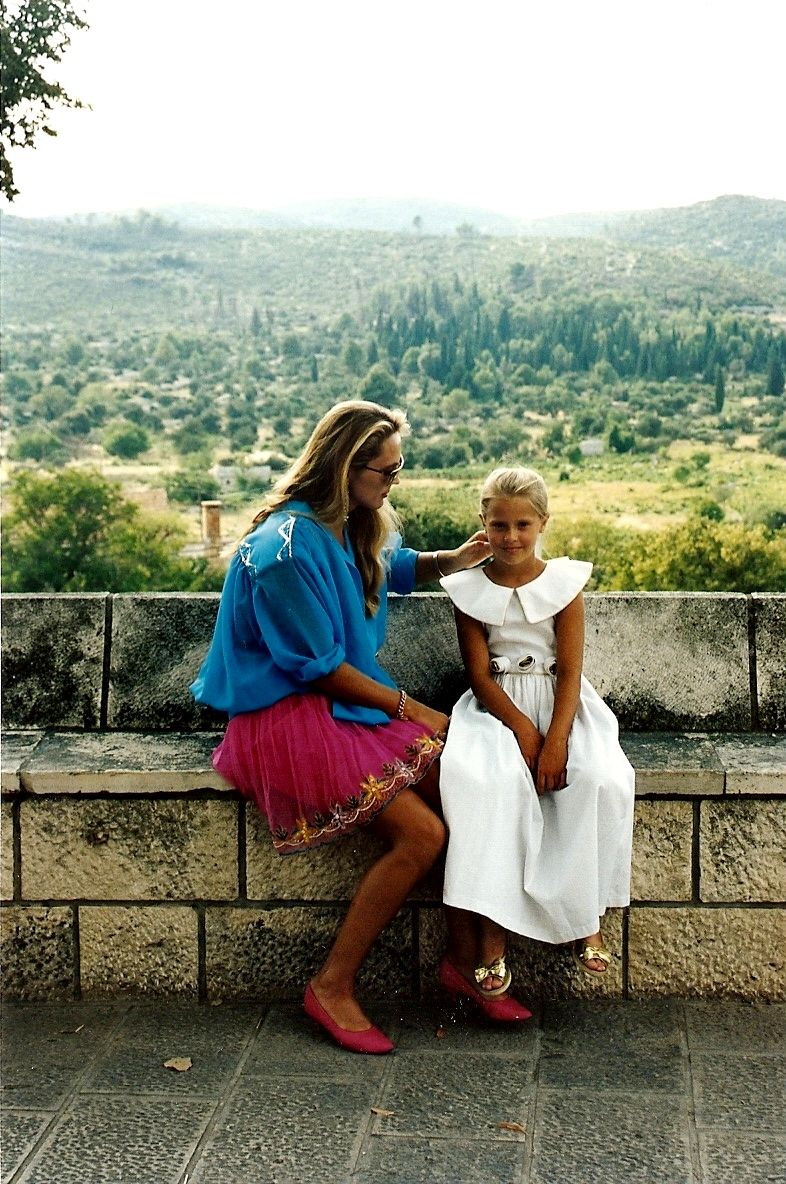
The importance of connecting with the world and others from a place of love, not fear was also a driving factor in the creation of My Grandma is Like the Sea. Given that the sea is a metaphor for the grandmother’s love and support, I wanted to ensure it was portrayed in a fun, warm, and inviting way for the children reading the book in order to maximise their connection. I was able to draw upon nostalgic memories in Croatia to achieve this. Some of my best memories spent in Croatia include jumping off the kaše in Mali Ston with family and friends, which was used in the past as a breakwater structure to protect moored boats and the enclosed harbour. As well as learning the ins and outs of oyster farming and fishing with my paternal grandfather in Mali Ston. Mali Ston is highly regarded for its oysters (Ostrea Edulis Oyster) and mussels, which has purposely been included in the illustrations, including other marine life home to the Adriatic Sea such as the Mediterranean Monk Seal.
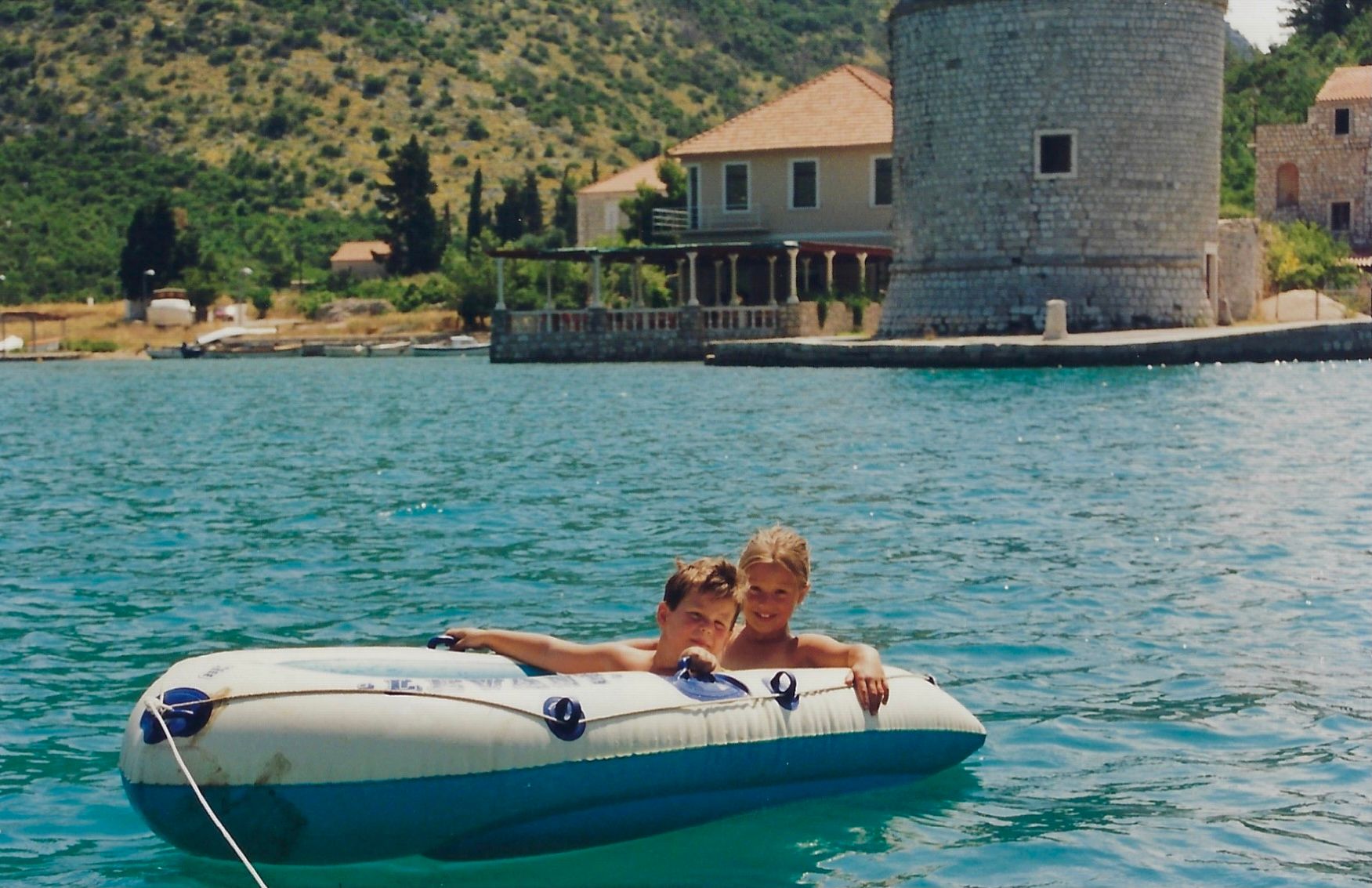
Music is a beautiful medium that connects us all as humans. Sure, music can be listened to online or not live. But the days of attending music concerts in Croatia really remind me of the magic of being a part of something amazing together. These concerts not only connected people in real-time and in the physical but based on my experience included those from a variety of ages. Of course, this can be experienced anywhere in the world, but the memories I have of attending concerts in Croatia almost always involved both young and old. Again, such experiences have contributed to and inspired the way in which I have created a children’s book that explores the relationship with a grandmother and grandchild.
There’s something beautiful about reconnecting to the nostalgia of the bygone days in Croatia, especially during our joint experience of the Covid-19 pandemic. Hopefully you can reminisce or reflect upon your days spent there, in a way that brings you hope, strength, or inspiration.
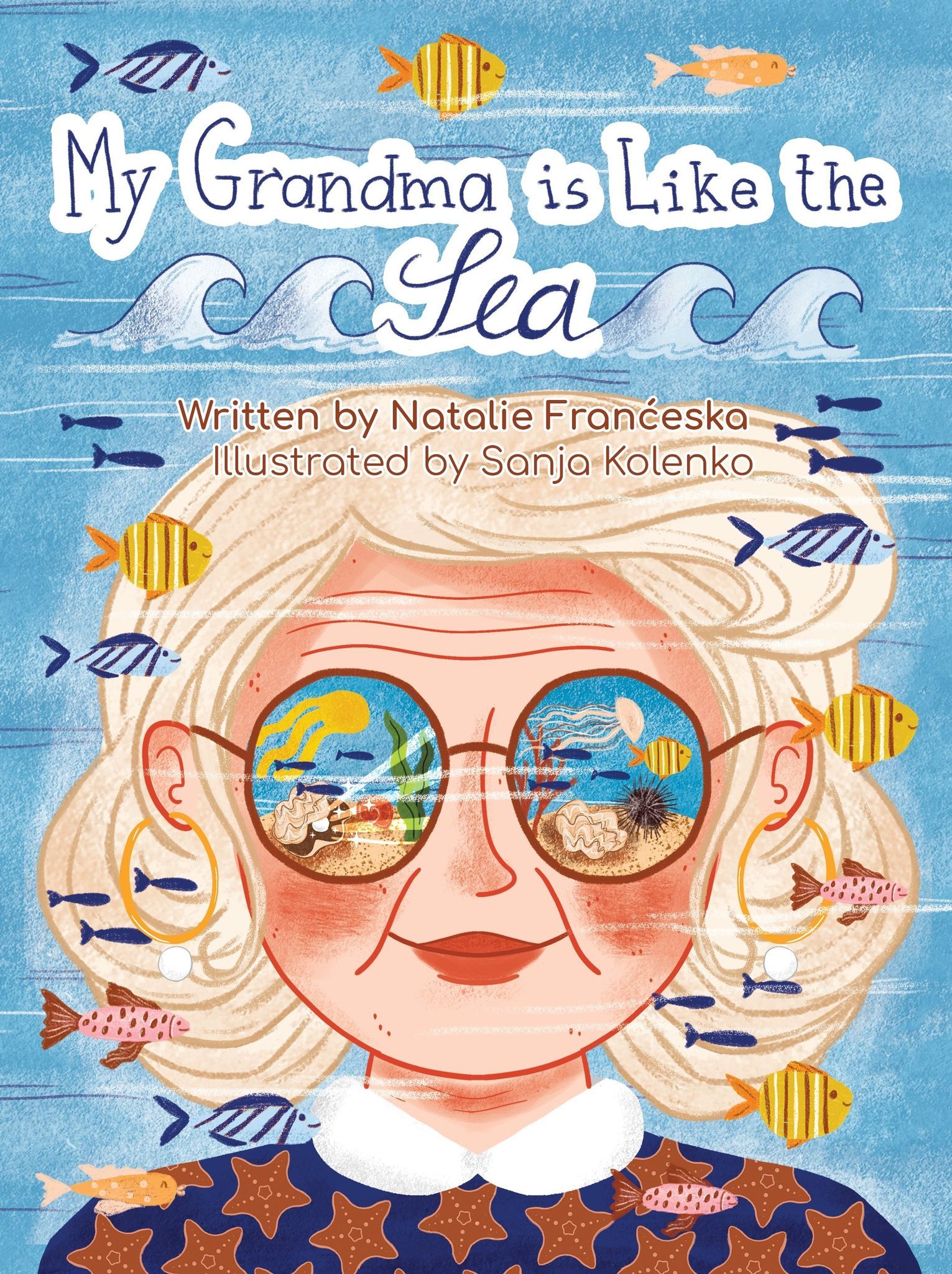
The book My Grandma is Like the Sea is available via the below:
AUSTRALIA https://nalasden.com/shop/
CROATIA, EUROPE & UK
UNITED STATES
https://www.amazon.com/Grandma-Like-Sea-Natalie-Franceska/dp/0645025402/ref=sr_1_1?dchild=1&keywords=my+grandma+is+like+the+sea+natalie&qid=1631746186&sr=8-1
CANADA
https://www.amazon.ca/Grandma-Like-Sea-Natalie-Franceska/dp/0645025402/ref=sr_1_1?dchild=1&keywords=my+grandma+is+like+the+sea+natalie&qid=1631746143&sr=8-1
NEW ZEALAND
https://www.amazon.com.au/Grandma-Like-Sea-Natalie-Franceska/dp/0645025402/ref=sr_1_1?dchild=1&keywords=my+grandma+is+like+the+sea+natalie&qid=1631746220&sr=8-1
21st Split Marathon Held, Croatian Male and Female Runners Finish 1st!
September 26, 2021 - The 21st Split Marathon was held on Sunday, with Croatian male and female runners finishing first!
The 21st Split Marathon was held in a beautiful ambiance only the people of Split can create. Hundreds of people crowded along the fence that separated the nearby barricades from the finish line, reports Slobodna Dalmacija.
The first marathoner to cross the finish line was Ivan Dračar, a member of Zagreb's Mladost, thus winning the title of one of the most beautiful marathons in the world. Second place went to Ante Živković from the Athletic Club Dubrovnik, while Frenchman Lucas Gourg overtook Croatian Zdravko Jadrijev just before the end of the race. The Frenchman thus came in the way of a completely Croatian triumph.
All three medals went to Croatians in the women's competition. Ljiljana Mišlov Brkić finished first with a time of 3:18:22. In second place was Marijana Katić, while Marija Vrajić took third.
"The last few kilometers were really hot but good; that's how it is in Split. I always love coming back because I spent my student days here. I am satisfied with the result, considering that almost nothing was run for two years due to the pandemic," said Mišlov Brkić.
Milan Mitrović from Serbia celebrated in the half marathon. Second place went to Alija Imamović from Bosnia and Herzegovina, while the third place went to Aleš Lindič from Slovenia. The best-placed Croat was fourth-placed Renato Sertić.
The deputy mayor of Split, Bojan Ivošević, also ran the half marathon.
"The last few kilometers were tough because I haven't trained for a long time, but with goodwill and a team that pushes you forward, everything is easier. I ran because of the position I hold; if someone attacks me, I can escape, haha," Ivošević joked.
Around 300 marathon runners started from the Riva, which is twice less than last year. The biggest news is that there were no forces from Kenya and Ethiopia because they failed to get a visa due to Covid. There were a little over 600 half marathoners, while a hundred of them took part in the relay marathon.
The marathoners toured Split's old town, Vranjica, the Lora military base, Poljud stadium, and. the West Coast to Bačvice beach and Diocletian's Palace near the end.
The Split marathon is known as one of the most demanding due to the elevation of 267 meters.
The organizers also set the musical background at every step. Josip Hatze's orchestra, band 058, Marjan choir, Split Down Syndrome Association, and many others performed along the way.
To follow the latest sports news in Croatia, follow TCN's dedicated page.
To learn more about sport in Croatia, CLICK HERE.


